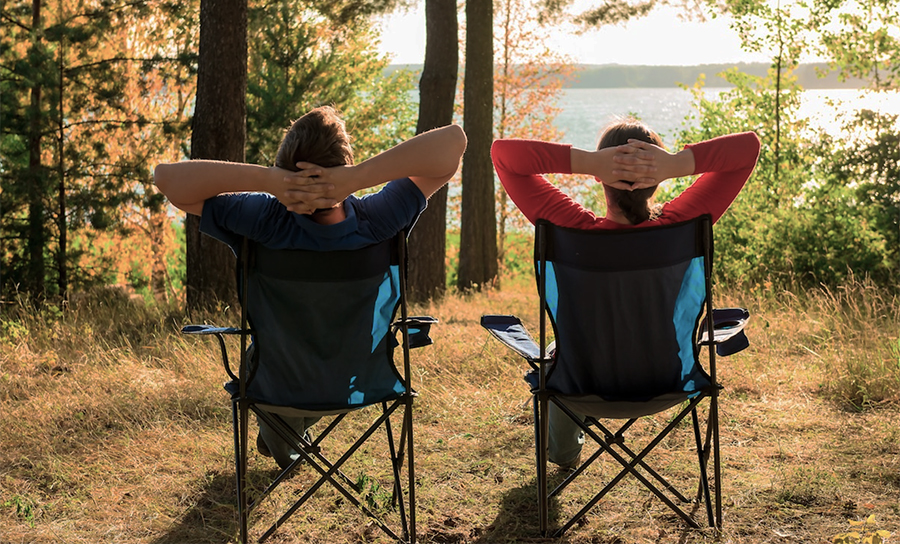<span style="color: #a1a1a1;">Camping World Holdings Inc. delivered a significantly better than expected third-quarter and is facing some inventory constraints as RVs continue to be looked on as a safe way to travel and explore the outdoors during a pandemic. Marcus Lemonis, chairman and CEO, estimated that it may take until 2021 for supply of RVs to catch up to demand.
“Business remained strong for the quarter with the positive trends we’ve been seeing through October,” said Lemonis on a conference call with analysts.
In the quarter ended September 30, revenue increased 21.0 percent to $1.68 billion, topping Wall Street’s consensus estimate of $1.51 billion.
Net income reached $58.1 million, or $1.44 a share, against a loss of $30.7 million, or 82 cents, a year ago. Results were handily above analysts’ consensus estimate of 96 cents.
Adjusted EBITDA climbed 258.4 percent to $217 million, representing a 12.9 percent margin. Gross margin was 31.8 percent, a 737 basis-point improvement over the prior year. SG&A expenses increased 7.8 percent but were reduced as a percent of sales to 19.2 percent from 21.6 percent.
New Vehicle Revenue Jump 33 Percent
Among major segments, revenue and gross profit in its Good Sam services segment increased 8.8 percent and 19.7 percent, respectively for the quarter, with gross margin increasing 59.5 percent, a 545 basis-point increase over the prior year. Good Sam’s growth was driven over most all products, including extended warranty, roadside assistance, insurance and travel assistance.
New vehicle revenue increased 33.3 percent to $907.6 million, driven by a 24.7 increase in new units sold and a 7 percent increase in average selling price. New vehicle gross margin increased 750 basis points to 19.5 percent. Used vehicle revenue increased 20.8 percent to $298.7 million.
Same-store sales for the quarter increased 26.9 percent with new unit revenue expanding 42 percent and used leaping 16 percent.
Cash and cash equivalents were $482.6 million on September 30, and an additional $104.3 million of cash was maintained in its floorplan interest offset account at that time. The total leverage ratio under its senior secured credit facilities was 2.3x at September 30, and the total leverage ratio is expected to be below 2.0x at December 31, 2020.
Lemonis said Camping World is making significant improvements in its proprietary technology systems as well as investments in new store developments and RV dealership acquisition. Six to eight new locations are expected to be added by the end of this year and at least 8 to 10 are expected to open annually going forward through a combination of new store development and strategic and opportunistic acquisitions.
During the quarter, Camping World announced a 12.5 percent increase in its quarterly dividend, and last week its board authorized a stock repurchase program for up to $100 million of stock, over the next 24 months. As a result of healthy third-quarter performance, Camping World’s 2020 adjusted EBITDA guidance was lifted from a range of $460 million to $490 million to a range of $495 million to $515 million.
Strong RV-Demand Expected Into 2021
One challenge had been the supply chain although Lemonis believes Camping World’s approach to inventory management and relationships with top manufacturers is helping the chain stay in better stock than competitors.
“I would be very surprised if inventory was able to be normalized at a level that dealers would want it to be in 2021,” said Lemonis. “The manufacturers are working hard to get full utilization. We’re meeting with them on a regular basis. And whether that’s Forest River or Winnebago or Thor, they are pulling out all the stops.”
Lemonis noted that RV buying, as usual, will slow in the coming months as “it gets colder outside and darker outside” but he expects demand to remain elevated well into next year and believes the demand is tied to factors beyond COVID-19. He said, “I don’t expect there to be a slowdown in the appetite for demand anytime soon.”
Lemonis didn’t touch on any further repositioning moves at Gander Outdoor. Camping World in May 2017 acquired Gander Mountain as part of a bankruptcy sale and initially converted the nameplate to Gander Outdoor.
Last fall, Camping World said it planned to “strategically shift away” from stores that cannot sell and service RVs and announced the closure or divestiture of 34 “outdoor lifestyle locations” by the end of January. In August 2019, Camping World divested 13 locations under the Uncle Dan’s and Rock Creek nameplates. Restructuring costs to cover the Gander Outdoors’ restructuring were $56 million.
Camping World reduced its store base to 163 as of September 30, 2020, from 209, at the same time a year ago as part of the 2019 Strategic Shift. Many Gander Outdoor locations were converted to Gander RV & Outdoors that sold RVs as part of the move. Camping World continues to own the-house.com and Overton’s.
Lessons Learned From Gander Mountain Acquisition
At an investor meeting in mid-September, Lemonis noted that the Gander Mountain acquisition fulfilled Camping World’s goal to accelerate its growth as an RV seller. Gander RV-branded locations are expected to deliver more than $50 million of EBITDA in the current year. But he admitted Camping World went too far in targeting outdoor lifestyles.
“While we had a misstep, we think we corrected quickly but we also learned something,” said Lemonis. “We learned that in our traditional Camping World stores, there was an appetite for more outdoor products, and our venture into outdoor products taught us what we want to be in and what we don’t want to be in. And we don’t want to operate locations that don’t sell RVs. But that doesn’t mean that we didn’t learn about fishing and hunting and camping and biking and hiking. And when we look at our 20 percent-plus improvement in our retail business in 2020, we think a portion of that is credited to that number.”
Lemonis stressed numerous times that Camping World’s foremost focus is on selling RVs. He said at the investor meeting, “We ultimately want a lot of transactions and we want that funnel to be as wide as possible, but one of the boxes they have to check, going through that funnel, is RV. If they don’t check RV, we’re not as interested. We are not Sportsman’s Warehouse or Bass Pros where we’re just trying to sell fishing poles and bikes. We believe that we have to identify people who love RVs and then give them the full assortment of products and services so that we have the largest share of wallet.”
Photo courtesy Camping World
















